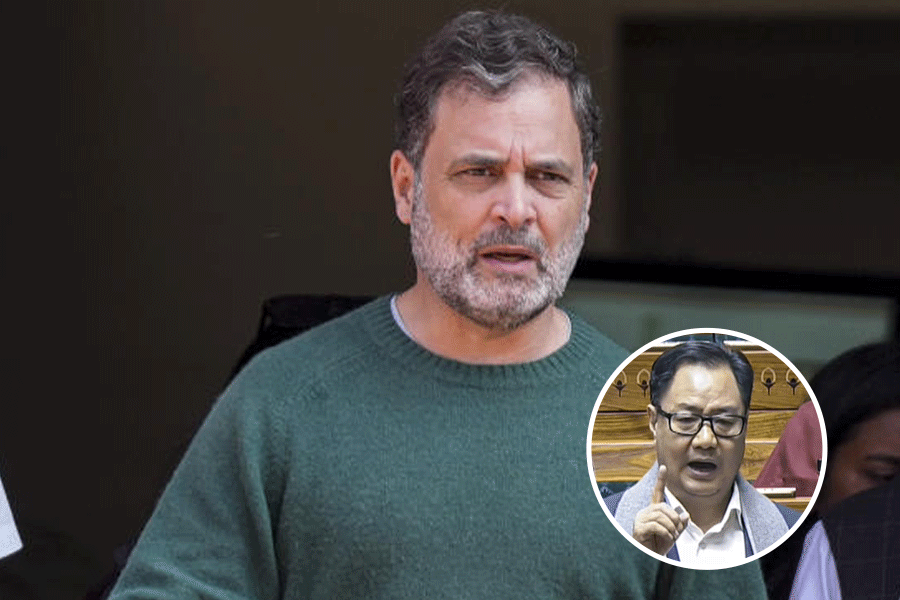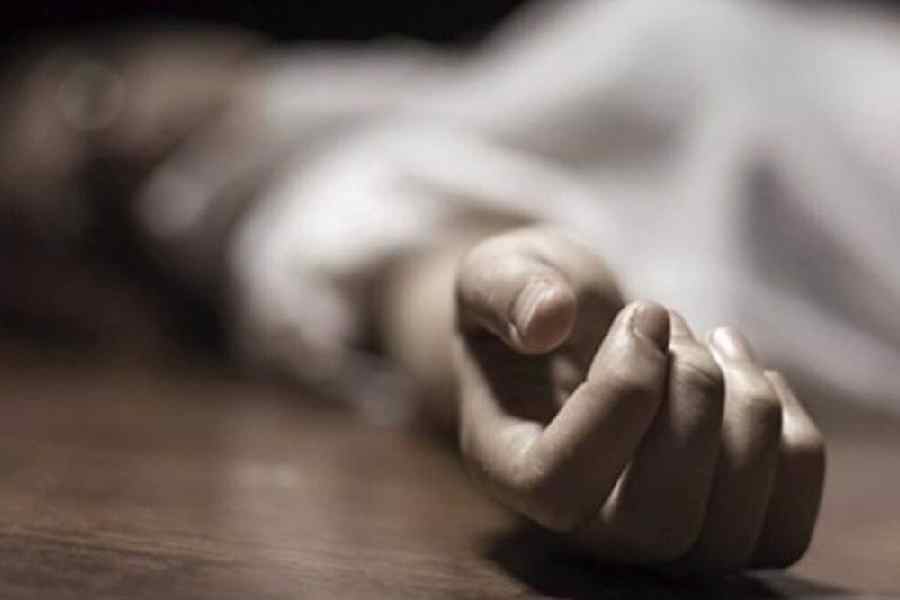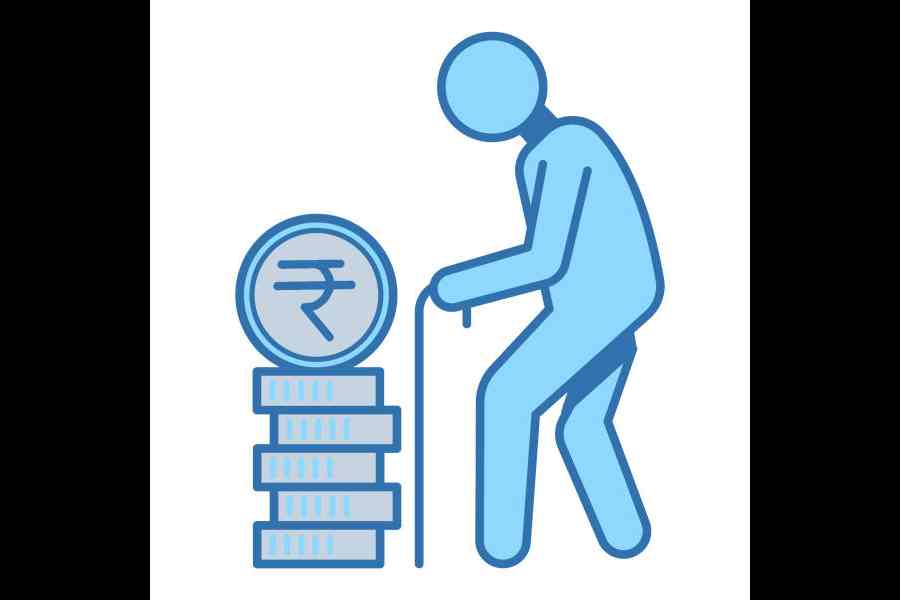 |
| WOMEN OF SUBSTANCE: Nabaneeta Dev Sen; (below) her mother, Radharani Debi |
A woman is not alone. She is part of a larger society, and this day is about the whole society’s awareness about women. I don’t understand why only women are interviewed on March 8, only women have their nari-chetana meetings. Yes, creating awareness is necessary among village men and women. But for city women, it’s preaching to the choir! And those who aren’t aware, namely, men, remain unaware, because they are not included.
If a woman writes about women, most men don’t read it. It’s just more feminist stuff, so you leaf through it. But when a man writes about women’s problems, you read it because you think a man’s view wouldn’t be partial. Yes, we too want our men to speak. We want many different men to say it, over and over again, what we’ve been saying for nearly 50 years. Tell the world what men think, how they perceive women and feminism, and what they think is good for women and men in today’s social system. They should also ask themselves what masculinity means to them, and what is their duty in bringing about change. Perhaps we too should ask ourselves what masculinity means to us women. That should be clear in our minds so as to help make the man-woman power positions balanced.
If empowerment means leading a life of your own choice, earning and spending according to your own will, spending your spare time as you wish, then I think I am an empowered woman today. But sadly, I am disempowered by my poor health. So, when everything is perfect, I am unfree!
At first I was leading the life my parents wanted me to lead. Luckily, they approved of the man of my choice. Then I was leading the life my husband wanted me to lead. It was only after my marriage broke up that I began leading my own life. Earlier, I used to voluntarily follow their will. This was the social training that I had received.
 |
Ours was a family of strong women. My mother, a child widow, made her name as a poet, ran away and married my father, another poet, at 28, and lived the life of her choice. She was an empowered woman.
As for my daughters (writer Antara Dev Sen and actress Nandana Dev Sen), after they grew up, no one ever asked them to live a life according to rules laid down by someone else. Both of them have been pretty independent, living and working according to their own free will. I am always here to support them. I have a non-biological daughter too, also a strong and free woman who is working and living her own life.
But my mother’s wishes had ruled my own life till her death. (And sometimes even today, her voice speaks within me.)
For example, when I wanted to go to Presidency College, my relatives exclaimed, “Oh no! Co-educational!” Besides, there was this terrible place across the road, called Coffee House. God knows what men and women did over coffee there! Ma said I could go to Presidency if I promised never to visit Coffee House.
I never stepped into Coffee House as long as I studied at Presidency. All the young writers gathered there. I was deprived of their company, and probably it was harmful for my growth as a writer.
Even when I started my career as a working single mother, I couldn’t do anything that I felt would upset my mother, since my father had recently passed away. I also had to be aware of how my actions would affect my children, who missed their faraway father. I could never think of myself as a single individual. I was always a person intrinsically connected with three other human beings, whose emotional well-being depended on me. One was ageing and the other two were growing. I had responsibilities and could never think of myself as a free spirit, although, I later discovered, that was precisely how my actions had presented me to the world. I had to be a responsible mother, daughter, teacher and writer. But truly speaking, I did not feel pressurised because of the varied roles I played. I saw it as a matter of course.
Ours was a happy household, an ancestral house full of my childhood memories, now filled with my own children, my mother and our pets. There was a lot of silly laughter, a lot of fun and frolic.
If you read my work, you’ll see I have many stories dealing with my family, with my mother, my children, our dogs and our cats. The life of four powerful women as a happy family in a manless home. They are all fun-loaded stories.
But if you think about the women individually — one widow, one divorcée, and two girl children of a broken home — they’re not the usual material for a happy family. But ours was one. The idea was to make our household as normal as possible, no different from any home with a mother, father and kids. Children don’t like to be different; they like to be like their peers. There was no man in our house, but there were two caring, thinking women. One drove down to work every day, another stayed home reading, writing and reciting poetry. My mother was intellectually very active till her last days.
There are plus points of being single too. I could go off on those wild trips only because I was a single woman. I have travelled to the strangest places on my own — like hitchhiking alone on a ration truck to the NEFA border in November 1977. Or, going to the Maha Kumbh of January 1977 in Prayag all by myself without fixing up a place to stay in. That is something, my daughters tell me, that even today, in 2013, they can’t imagine doing. Or, to actually hitchhike on a petrol company’s private plane to the Alaskan Tundra in 1986. Yes, you may call that empowerment.
In those days India was the best place for an educated woman to travel alone. India was more Indian, more trustworthy, less greedy. After globalisation, India has changed. I don’t think a woman in her mid-30s would be able to travel like that today. Back then, it was just India all over. Everybody — rich, poor and middle-class — knew what India and Indian culture meant.
I think, time has taken its toll. The media and the new world has too quickly transformed us. It has uprooted us in many ways, and the trust that came from knowing one another is not there anymore. There is a strange denial of our roots, while we are yet to find a real, strong identity for ourselves.
It seems to me, that as a part of this insecure identity, safety for women is on the decline everywhere. Once upon a time Calcutta was safe for women. I would put the children to sleep and drive down alone for adda to some friends’ place — Sunil (Gangopadhyay) or Tarapada (Roy) — on weekends at 10.30 or 11 at night and come back in the wee hours of the morning. Ma wouldn’t worry at all. Today, it’s nerve-wracking for me if my daughter drives back alone from work after midnight.
But I’m not a pessimist. Such a state of affairs cannot last forever. I have a lot of hope and faith in our youth. I believe that the next generation is seriously thinking about its own future, forging its own paths. There are dark moments, but you can’t let that get you down, can you?
As told to Abimanyu Nagarajan










